General Election 2015: Fishing is on Nigel Farage's mind as he casts a line to the disaffected of Grimsby
The Ukip leader delivered his big election speech in the port town of Grimsby
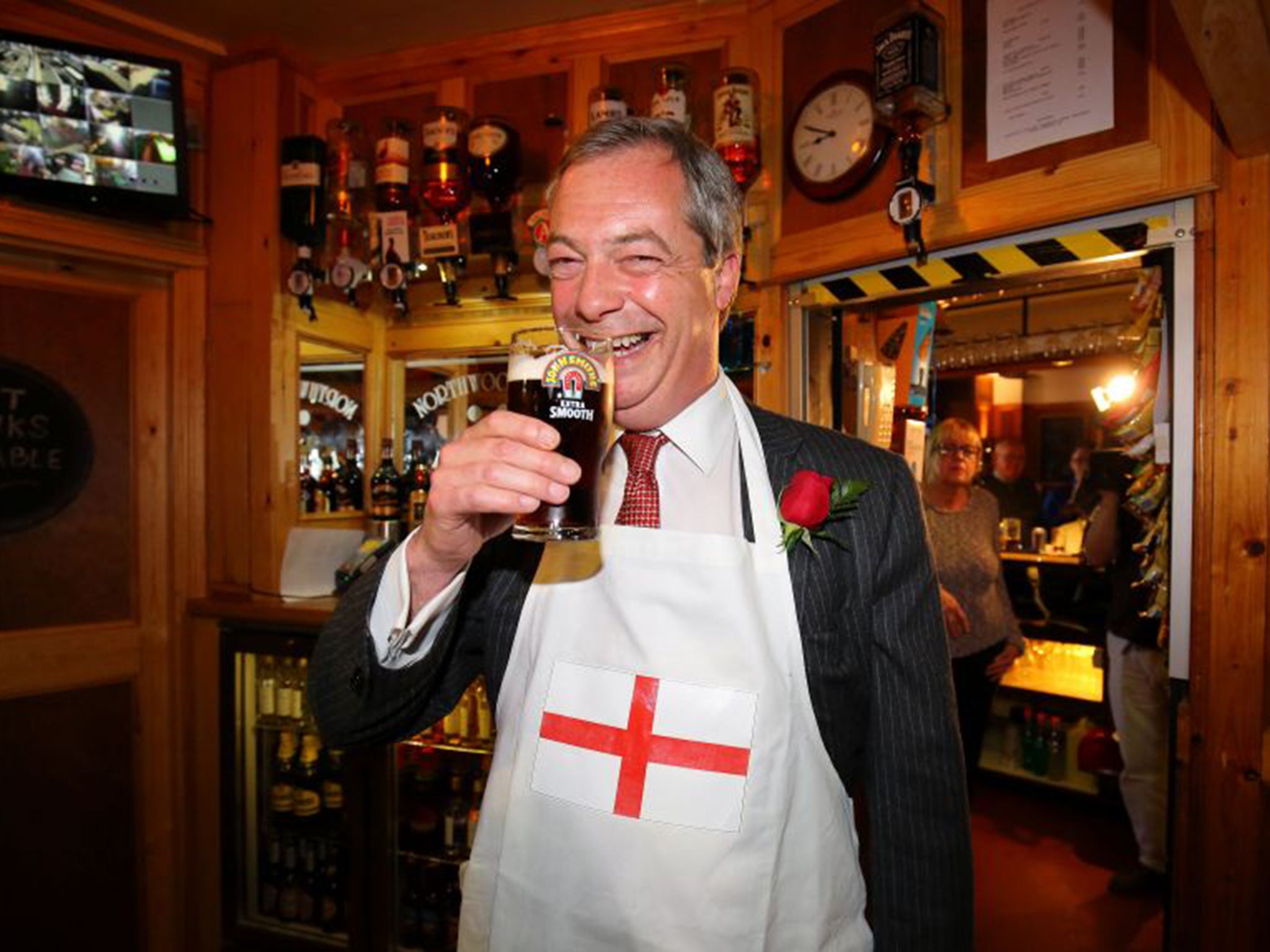
Your support helps us to tell the story
From reproductive rights to climate change to Big Tech, The Independent is on the ground when the story is developing. Whether it's investigating the financials of Elon Musk's pro-Trump PAC or producing our latest documentary, 'The A Word', which shines a light on the American women fighting for reproductive rights, we know how important it is to parse out the facts from the messaging.
At such a critical moment in US history, we need reporters on the ground. Your donation allows us to keep sending journalists to speak to both sides of the story.
The Independent is trusted by Americans across the entire political spectrum. And unlike many other quality news outlets, we choose not to lock Americans out of our reporting and analysis with paywalls. We believe quality journalism should be available to everyone, paid for by those who can afford it.
Your support makes all the difference.As the venue for Nigel Farage’s big election speech in Grimsby, the Victorian town hall was a good choice. Described in Pevsner’s Buildings of England as “both opulent and restrained”, it dates from the early 1860s when the town was rapidly rising to a dominance as the country’s premier fishing port, which it would sustain for most of the next century.
Fishing – and its subsequent decline – was very much on the Ukip leader’s mind. He told an appreciative 100 or so supporters, mainly aged over 50, that in contrast with Iceland and Norway, Britain could only keep 20 per cent of the catches made by its fishermen, “giving away” the rest to Europe. Thanks to the Common Fisheries Policy, Grimsby now boasted a mere “15 fishing boats”, and the town’s still major food processing industry now imported fish from Iceland and Norway.
“And you notice that Iceland and Norway are not members of the European Union,” he continued, his voice rising as the applause began. “When Britain leaves the EU, Grimsby once again will be a great fishing port.”
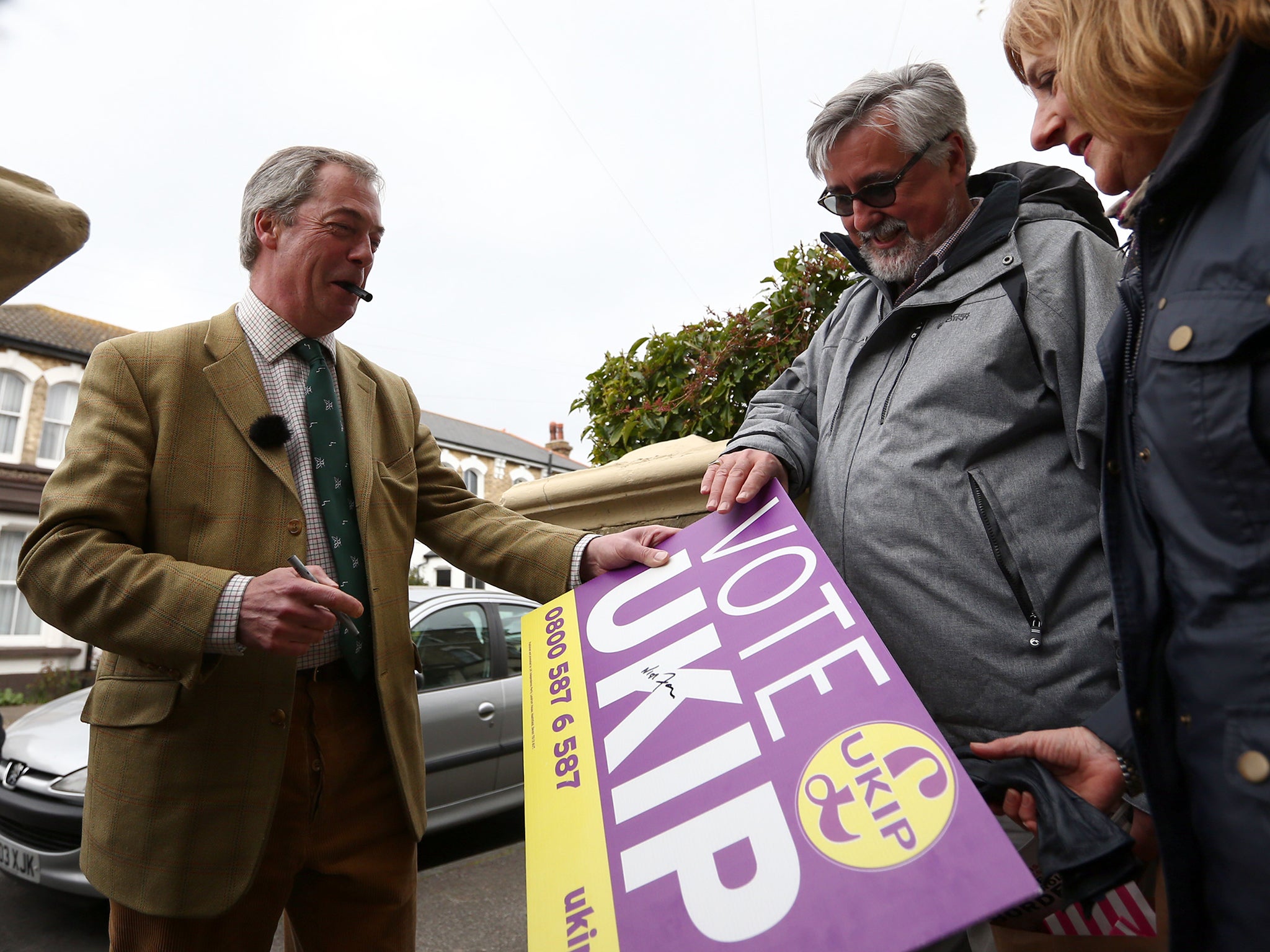
The speech wasn’t all about fishing. In fact its skilful rhetoric neatly encapsulated many of the Ukip’s leader’s themes. “Open door” immigration had caused a “massive oversupply in the labour market”, driving down the pay of those on already low wages while benefiting “the rich, the big businesses and the big landowners”. As for the “so-called economic boom, I bet you’re really feeling that in Grimsby, aren’t you?” (More appreciative laughter and applause.) Or the Coalition’s boast that the UK spent more in foreign aid “than any other Western country – I bet that warms the cockles of your heart, doesn’t it?”
There was too the note, if not of self-pity, of embattled underdog, that Mr Farage sometimes strikes. “The Establishment is so scared ... that’s why they throw out endless abuse, saying we’re extreme and racists and bad people. Well, it is not extreme or racist or bad to want to control your borders sensibly.”
Are you undecided about who to vote for on 7 May? Are you confused about what the parties stand for and what they are offering? Take this interactive quiz to help you decide who to vote for...
But his strongest pitch was for the industry that had once been the source of the Grimsby’s pride. Now one of Ukip’s target seats, the town has, remarkably, had just three MPs since 1945, all of them Labour. The first two, Kenneth Younger and Anthony Crosland, were prominent ministers in the Attlee, Wilson or Callaghan governments. The third is Austin Mitchell, who for the first time since he won a by-election in 1977 will not be standing on Thursday.
This was pointedly reflected in the first question the Ukip leader was asked after his speech that sunny morning in early April – pre-submitted in writing, as they often are at Mr Farage’s meetings – “How would you put Grimsby back on the map,” asked one man, “after 70 years of Labour pain?” Well, said Mr Farage, the first way would be to administer a “shock to the establishment” by electing a Ukip MP in Grimsby. But come an EU referendum, the fishing industry “and its potential to provide tens of thousands of jobs for people all over this country” must not be “ignored and allowed to die”.
The reasons for the decline of fishing in Grimsby are more complicated than the EU’s Common Fisheries Policy alone. Nor would Brexit magically restore it to its former glory. But Mr Farage was striking a real chord here, appealing to what political scientists Robert Ford and Matthew Goodwin call in their study of Ukip, Revolt on the Right, the “left behind”, the mainly white groups which have been hit “particularly hard” by the “deep economic and social changes” of the past few decades” and have been “written out of political debate and turned against traditional mainstream politics”.
That morning, Mr Farage had slipped into the town hall by a side entrance to avoid a vocal group of local demonstrators from the left-wing Trade Union and Socialist Coalition (TUSC), chanting “Nigel Farage we know you: you’re a racist and a Tory too.”
But there is an overlap between Mr Farage’s repeated dismissal of “cardboard cut-out careerists of Westminster”, and the assertion by TUSC’s Grimsby leader Dave Mitchell’s that “politics is for ordinary working people” not just “people at the top”. Each in his own way reflects the Ford/Goodwin thesis that “both main parties “now regard winning support from middle-class swing voters as more important than appealing to those struggling left behind voters”.
That Ukip is electorally more successful than TUSC owes as much to Mr Farage’s deftness as a politician as to his Boris Johnson-like “candour”. No party leader is as adept at the iconography of politics. The setting at Ramsgate’s Northwood Club, where – on St George’s Day, of course – the Ukip leader chose to make his pitch for the English nationalist vote, was perfect. It wasn’t just the line-up of bemedalled old soldiers, or the giant England flags decking the club function room. Or the reassuring presence of the silver-haired Colonel Roger Latchford OBE, once a senior Conservative and now the leader of Ukip’s 17 county councillors, who told the company he was “very angry that this government is cutting back our armed forces”. “I keep saying this is more than a party for retired colonels,” remarked Mr Farage happily, “but Roger actually is one.”
The Ukip leader equally demonstrated his skill in fusing the medium with the message, giving the photographers the image of the day: pulling and then drinking a pint of John Smith’s while clutching a white plastic helmet emblazoned with St George’s cross. Mr Farage understands that a good picture is even more telling than a good soundbite. Had he not a fortnight earlier unveiled his anti-immigration poster against the irresistibly photogenic white cliffs of Dover?
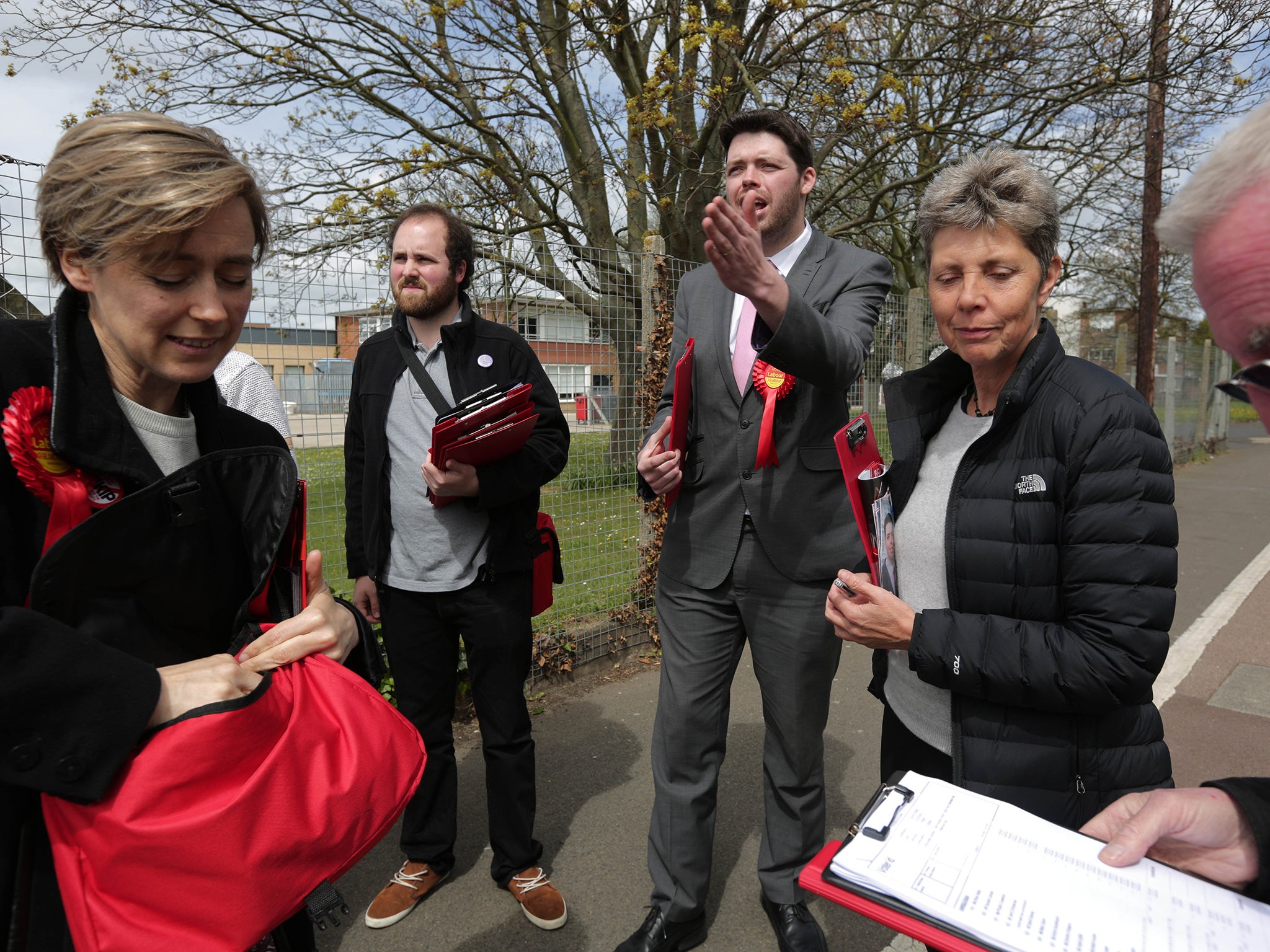
Mr Farage was on vigorous form that day, no doubt buoyed by a Survation telephone poll commissioned by Ukip backer Alan Bown on the three-way race in South Thanet, showing the Ukip leader well ahead of his Tory rival Craig Mackinlay and Labour’s Will Scobie. He denounced the “terror” of Scottish nationalism, accusing the three “so-called” main parties of “appeasing” it by promising to keep the Barnett formula – or as Mr Farage often puts it “shovelling money over Hadrian’s Wall”. Labour MP Emily Thornberry’s career-sabotaging tweeted picture of a house draped in a St George’s flag had only gone to show that Englishness was “something our political classes look down upon, they sneer at”.
I ask Mr Farage about a Tory claim, before the latest poll became public, that he had been rattled enough to start backtracking on his pledge to stand down as leader if he lost in South Thanet. “Tories!” he scoffed. “If I lose I’ll be gone in 10 minutes. The Tories are pathetic.”
It was Mr Mackinlay who had suggested to me that Mr Farage might yet “construct” a reason for staying as party leader if defeated. The Tory candidate is a former Ukip member himself when Europe was its principal issue, not immigration. We met as he canvassed in the picturesque medieval lanes of the Cinque Port of Sandwich, something of a Tory stronghold.
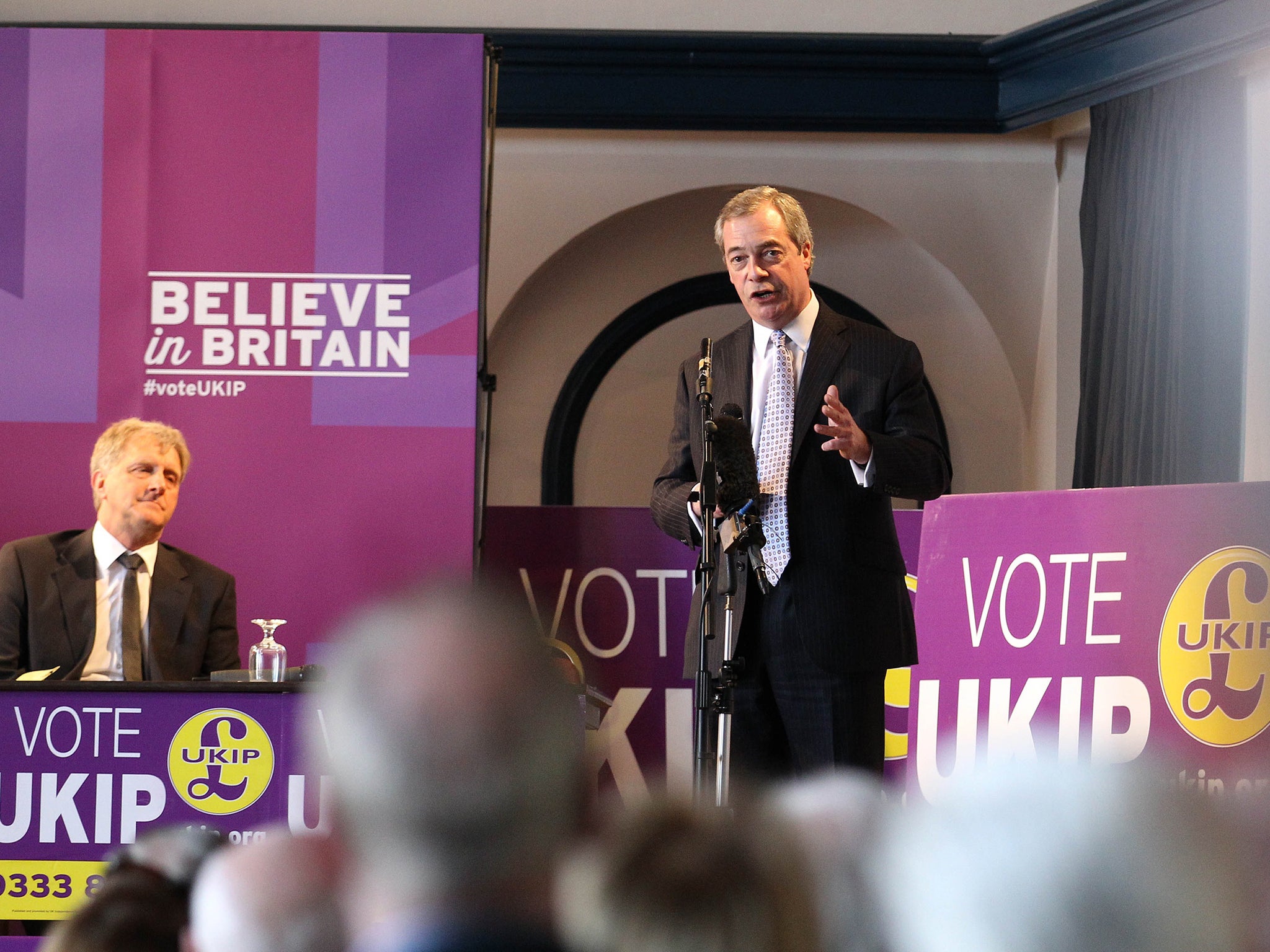
Poll or no poll, Mr Mackinlay insists that some Ukip voters are “coming home”, recognising that “this election is about government, not a protest”. And that it is coming down to “two-horse race” between himself and Mr Farage. Mr Scobie, he added, is a “very nice chap, but only 25 and I think you need someone with a bit more experience in a constituency like this. And Labour haven’t put many resources in here – no big hitters.” This cannot be said of the Tories. Two weeks ahead of polling day, 11 Cabinet ministers plus Boris Johnson had visited – evidence of the Tory high command’s driving ambition to defeat Mr Farage.
With above-average unemployment, South Thanet has suffered more than its fair share of economic decline; Ramsgate’s decline as a resort, the closure of Manston airport and Pfizer’s abandonment of its Sandwich plant in 2011 with the loss of 1,500 jobs. But Mr Mackinlay insists the constituency has hit the bottom and says Mr Farage is unduly “negative” about it. He also questions the Ukip leader’s capacity for the voluminous but mundane constituency workload of an MP. “What is he going to do – leave it to [Martyn Heale] his ex-National Front chairman?”
The Tory candidate, who has a Hungarian wife, is hardly an immigration hawk. He has been attacked by both Labour and Ukip for calling for stronger immigration controls while having started a website encouraging Hungarians to come here for jobs in “agriculture and food processing”. Mr Mackinlay has insisted that the business never got off the ground. While sticking firmly to Tory party policy of denying benefits to non-working EU migrants and conceding that the numbers are “worrying”, he says immigration is “diminishing” as an issue compared with the NHS, the economy and care for the elderly.
This may be so in genteel Sandwich. But Mr Mackinlay knows the climate is different elsewhere in the constituency. One of the two wards in Cliftonville, Margate, – once quite posh – is among the poorest in the country. Here, immigration is frequently mentioned by native voters, even if not all are convinced by Mr Farage. Jess Stanley, 21, says he was laid off from his temporary 12-hours-a-day job, paying £8.50 an hour, two days earlier he and his English co-workers were replaced by Romanians willing to work for less.
Yet he thinks Ukip is “a bit extreme”. He hasn’t decided how to vote, because “working seven to seven I haven’t had time to look at what the parties are saying”.
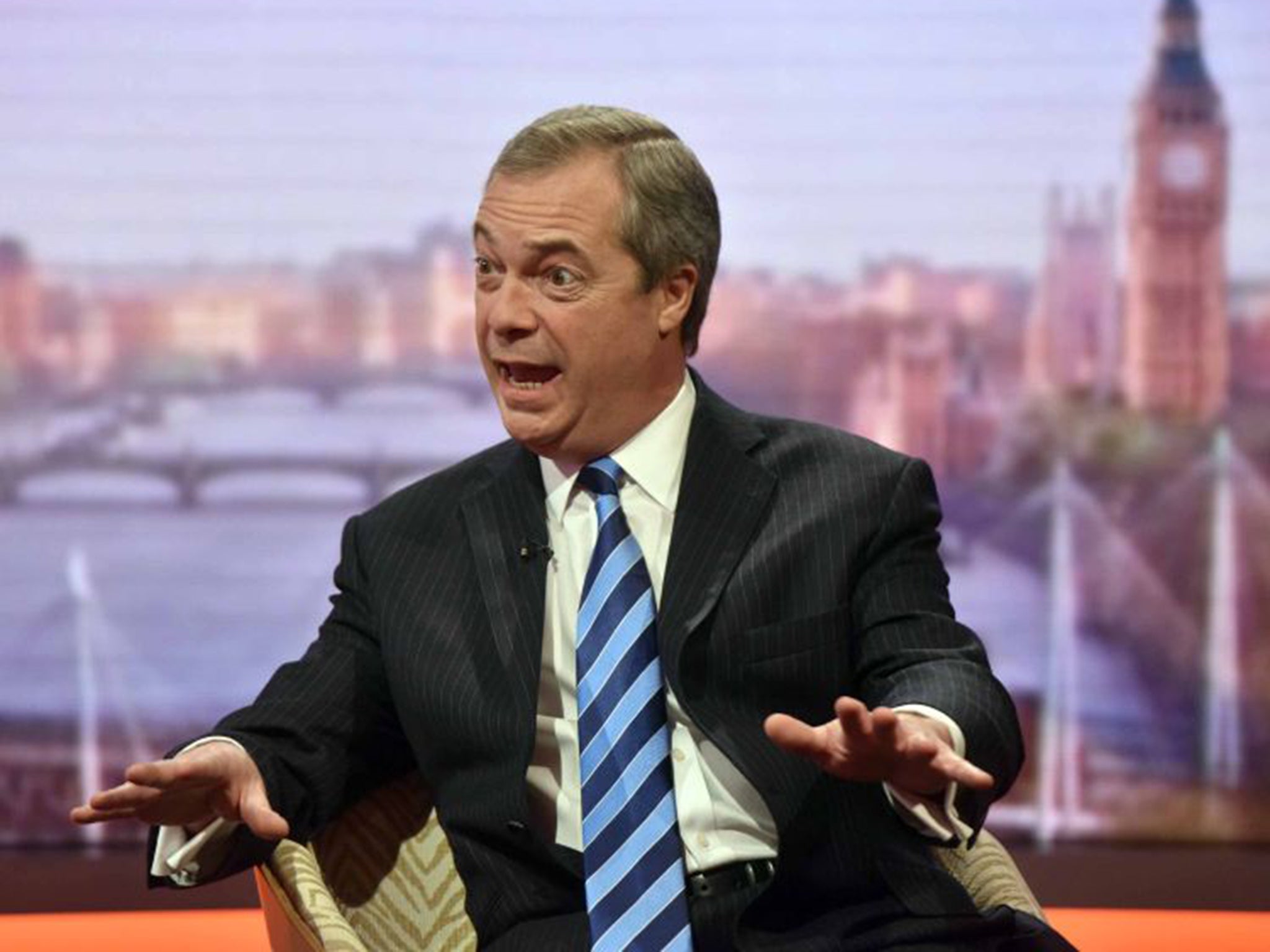
At the Bellevue pub, Ukip-awareness – and an admiration for Mr Farage’s “honesty” – could hardly be higher among a group of English friends enjoying a lunchtime reunion in the sunshine. Alan Besant, 60, in a wheelchair from a permanent disability suffered after he came out of the Army, says he will vote for the Ukip leader even though he wants to stay in the EU, but with reforms to stop Britain being “everyone’s whipping dog”. But immigration is overloading public services, he believes. He himself has been “lucky” with his own treatment but says he knows “a lot of people” who can’t get the physiotherapy appointments they need.
Matthew Best, 30, a salesman at a local builders’ merchants, says: “I’ve never voted in my life, but I will vote for Nigel Farage. I like what he’s saying.” For Best, who works with Romanians, immigration is also key. “I get on with Romanians very well,” he insists. “But if people from here go to Australia they have to be qualified.”
These are white men. And the Ford-Goodwin analysis cites the resistance of women and ethnic minority voters as an obstacle to Ukip broadening its base; they add that the gender gap – 57 per cent of Ukip’s supporters are male – isn’t that “surprising” given a series of sexist declarations by Ukip candidates.
Mr Farage, uniquely among the four UK-wide male party leaders, has not deployed his wife, Kirsten, in the campaign. Raheem Kassam, his chief of staff, explains that Mr Farage thinks it’s “just not cricket” to drag his family into political life. That may be commendable but it didn’t prevent Mr Farage having a hard time on ITV’s Loose Women over his happy boozing or his self-confessed 5am-to-midnight political life. In the programme, Linda Robson asked him sharply: “When do you spend time with your wife and children?” The reply: “At the moment I don’t. You cannot conduct any sense of family life and do politics.” Whether the programme did much to broaden Mr Farage’s appeal to women seems doubtful.
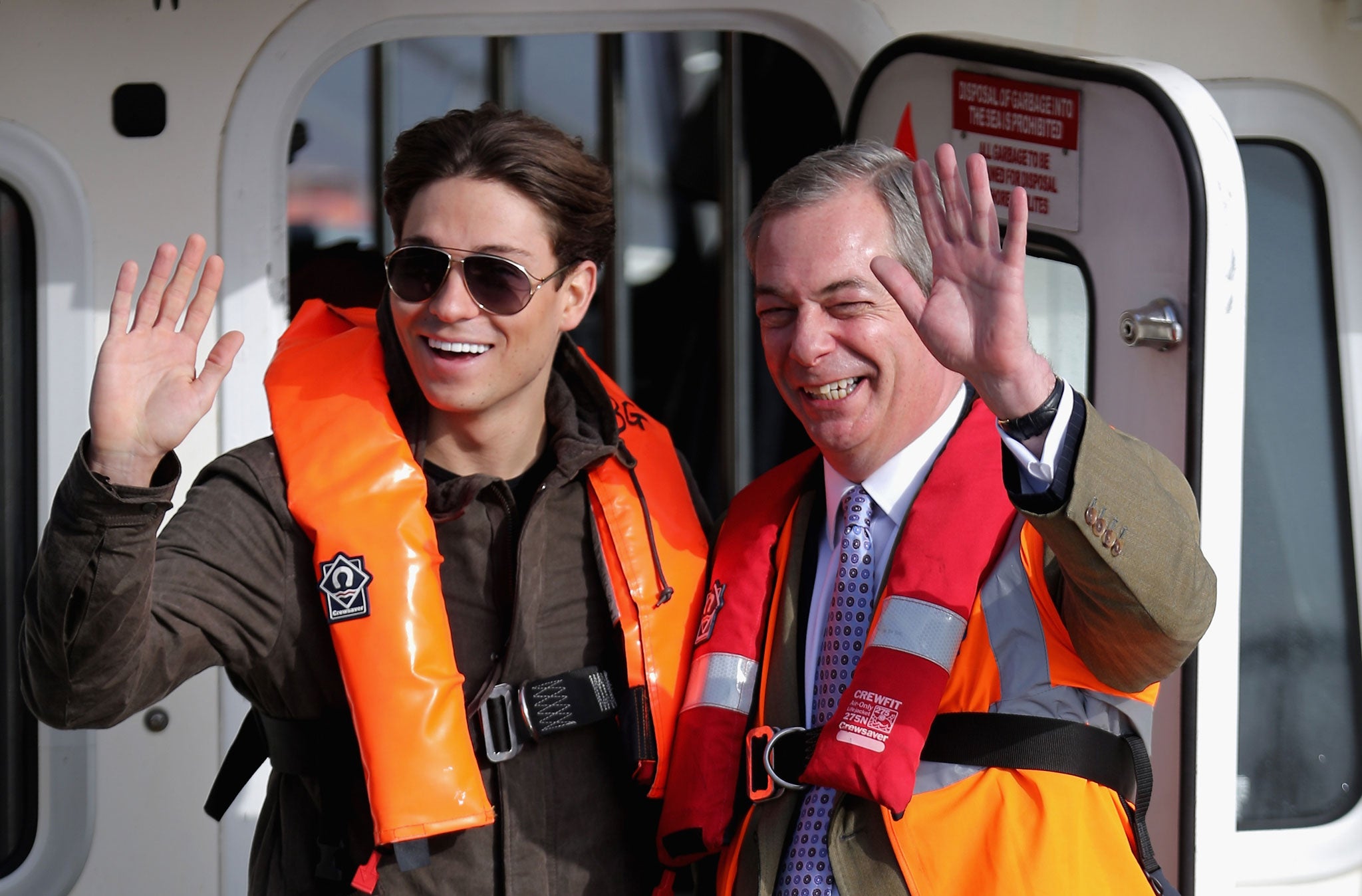
Mr Kassam, as it happens, is the son of a Ugandan Asian immigrant. But is there a “virus of racism” running through Ukip, as Labour’s Chuka Umunna has charged? The Bellevue drinkers seem sincere when they protest, along with Mr Farage and the rest of the Ukip leadership, that they are not racists. Whether the same can be said of all the party’s active members and candidates – of whom Jack Sen is only the latest to be suspended, for an anti-semitic slur on Labour’s Luciana Berger – is much more doubtful.
Cliftonville councillor Rozanne Duncan was expelled from the party after saying in the BBC documentary Meet the Ukippers: “I really do have a problem with people with negroid features.” But what’s striking about the film is how the party, at least in internal discussion, blames its enemies for the accusations of racism.
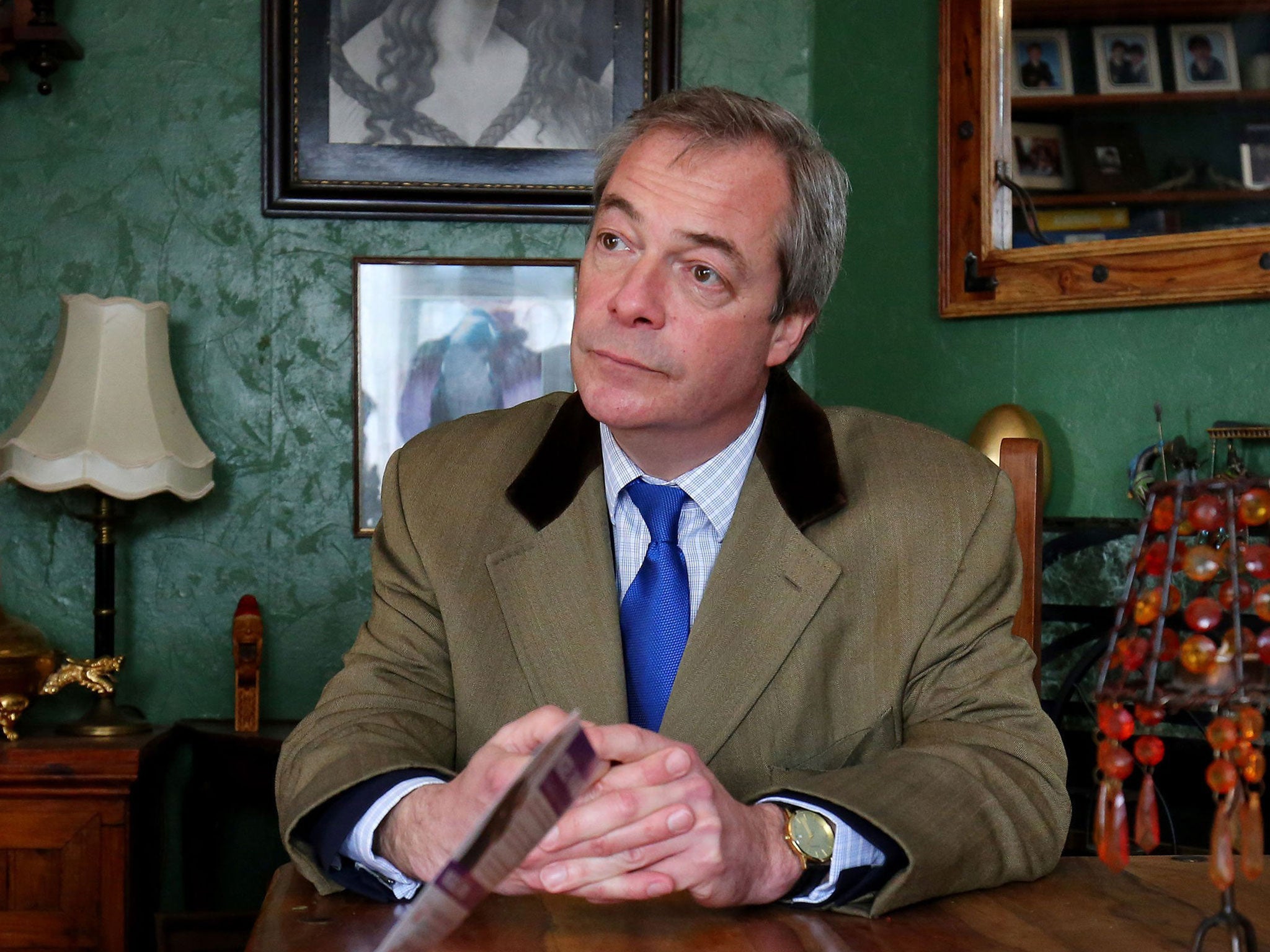
The day after his St George’s Day celebration, Mr Farage addressed 200 people in the Broadstairs Pavilion. It was an all-ticket event requiring local residents to pre-register and bring ID. Which made it a little surprising that Gary Field, the former regional organiser of the English Defence League and now apparently the leader of a group calling itself East Kent English Patriots and who has a past conviction for assault, arrived at the hall with supporters from the Kent National Front, and had no trouble being admitted by Ukip’s security guards. Particularly as Jackie Walker, a member of Stand Up to Ukip, but also a ticket-holding Broadstairs voter, was initially excluded and allowed in only after vocal protests.
Ms Walker, who happens to be black and whose partner is a Labour activist, believes the decision to admit her - on condition that she didn’t make trouble, which she had never intended to do - was probably taken by Farage himself. What worried Ms Walker about an otherwise “boring” event was that Farage started criticising SUTU as a 'trade union backed' organisation. “ I thought why is he mentioning a piddling group like ours? We’re mainly women in our 40s, 50s, 60s and even 70s” As the only black person in the room, she said that she left after the first two or three questions to avoid any “fascists from the National Front and the English Patriots” on her way out.
The following day English Patriot and NF supporters descended on both a SUTU group packing up its street stall in Broadstairs and, separately, a group of Labour canvassers to harass them. The incidents were captured on video by the far right groups themselves; while there is no real violence - though Labour say leaflets were torn up and rosettes ripped from the canvassers - the atmosphere is certainly ugly and intimidatory. Ms Walker is certainly not accusing Farage, who had tweeted after the exposure of Field’s’s presence that UKIP has “no truck” with extremists, of inciting the incidents. But she does say it was “totally irresponsible” of him to single out SUTU for criticism when “fascists” were standing by. And she asks, “why on earth were they not stopped from getting into the meeting by security. You can only conclude the leadership isn't frightened enough of them. “Finally she points out that when Will Scobie and Craig Mackinlay stood together to condemn the intimidation, Farage’s response was to tweet: “The ConLab coalition emerges. South Thanet’s Labour & Tory candidates pictured today officially campaigning together.”
It is probable that many electors who opt for Ukip on Thursday will do so for reasons that have little to do with race, or even immigration. It’s often clear on doorsteps that grievances over NHS waiting times, cuts in social care, living standards and much else have morphed into a much wider disillusionment with mainstream parties, although it now looks as if several target seats, including Grimsby, may not fall to Ukip. And even if Mr Farage himself loses in South Thanet, as Lord Ashcroft’s latest poll suggests he might, it will take far longer to repair the breakdown in trust between much of the electorate and the political class that Mr Farage has so determinedly exploited.
Join our commenting forum
Join thought-provoking conversations, follow other Independent readers and see their replies
Comments